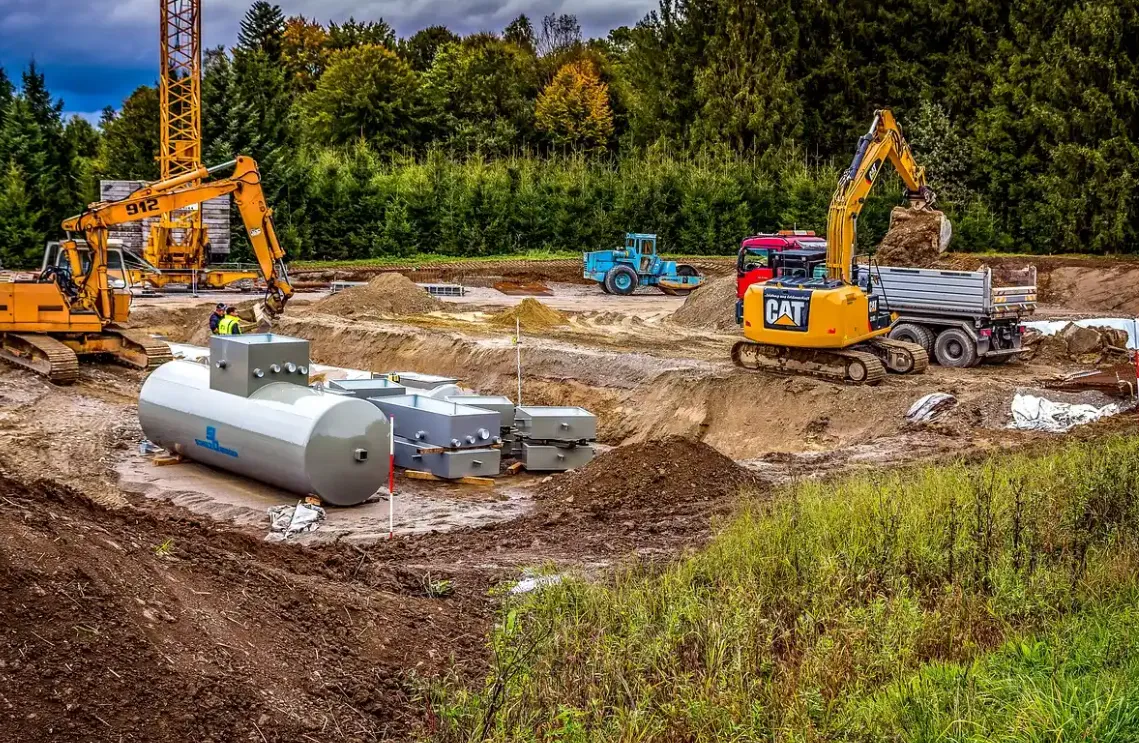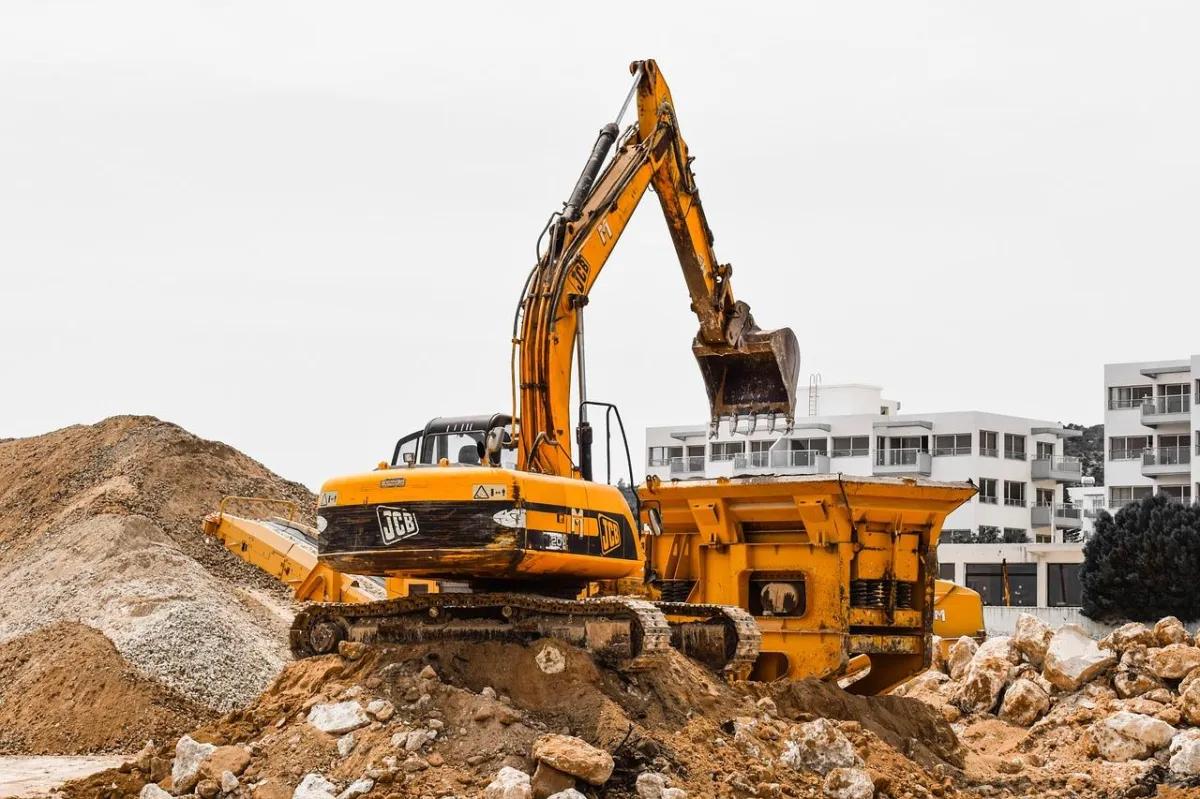
Commercial Excavation Company Near ,
Why Choose the Right Commercial Excavation Partner?
When it comes to starting a large-scale construction project, choosing the right commercial excavation partner can feel like a critical, daunting decision. You might be asking yourself, Can I trust them to do the job right? Will they stick to my budget and timeline? These are questions worth asking, and if you feel a little overwhelmed, you’re not alone.
Excavation is one of the most essential phases of construction—it’s not just moving dirt. If done right, it sets the foundation for everything else. But if something goes wrong? It can be a costly mess that throws off your entire project. Problems with grading, unexpected hits to utility lines, or even small errors in measurement can cause major setbacks, and that’s not something you want on your plate.
So if you’re searching for answers and need more clarity before making your choice, you’re in the right place. We’re here to lay out everything you need to know, so you can make an informed, confident decision.
How Can We Help?

is Committed to superior quality and results!

AVOID COSTLY MISTAKES:
Do NOT hire an excavating contractor without first reading our free guide:
The ULTIMATE Excavation & Septic "Success Guide."


The Real Cost of Commercial Excavation: Understanding What You’re Paying For
Commercial excavation doesn’t come with a one-size-fits-all price tag. Factors like project size, soil type, location, and depth of the dig all play into costs, as well as any complexities that might arise from your specific site.
Typically, excavation pricing is calculated based on the amount of material to be moved (in cubic yards) or as a flat hourly rate for labor and equipment. But here’s the catch: the cheapest bid isn’t always the best choice. Why? Because in this industry, cutting corners can lead to unexpected issues down the line, like poor drainage, grading issues, or unstable ground conditions.
When budgeting, consider these key elements that affect cost:
Type of Soil and Site Conditions: Rocky or compacted soil can slow the process and require specialized equipment.
Depth of Excavation: Deeper digs are generally more costly because of the additional time, labor, and potential need for reinforcement.
Utility Lines and Environmental Concerns: Excavating around utilities or protected environmental areas requires precision, adding to labor time and cost.
An experienced excavation partner will help you understand these variables, offering insights on how to optimize the cost without compromising quality.
Common Challenges in Commercial Excavation and How to Overcome Them
It’s easy to think of excavation as a straightforward job, but anyone who’s been through a commercial dig knows that challenges are the norm rather than the exception. From unexpected weather conditions to surprises underground, here are some of the top issues and how a seasoned excavation team would handle them:
Weather Delays: Rain, snow, or even an unexpected heatwave can slow down or halt operations. A good partner will plan around seasonal weather trends, schedule work in safer windows, and have contingency plans.
Undiscovered Utilities: Buried pipelines or cables are a big challenge in excavation. Modern excavation teams utilize advanced tools like ground-penetrating radar to detect utilities before digging, minimizing the risk of costly damage.
Poor Soil Conditions: Not all soil is ideal for excavation. In areas with soft, sandy, or clay-rich soil, extra support or adjustments might be needed to prevent future instability.
A reliable excavation team will assess potential risks ahead of time, advise you on preventive measures, and adapt their approach to keep your project on track.
Comparing Excavation Methods: Which is Best for Your Project?
Excavation isn’t just about digging a hole. There are different methods for different needs, each with distinct advantages:
Topsoil Removal: For projects where only the top layer needs to be removed (such as landscaping), this cost-effective method is ideal.
Cut and Fill Excavation: This method levels uneven land, filling in low areas with soil from higher ground. It’s popular in road construction and building foundations.
Trenching: Used primarily for laying utilities, trenches need to be narrow and deep. Trenching requires precise work to ensure stability and safety.
Dredging: If your project involves water bodies, dredging removes silt and other materials to keep waterways clear.
Choosing the right method depends on your specific project goals, and an experienced excavation team can recommend the best approach to meet your requirements.
See Our

✔️ Commercial Excavation
✔️ Residential Excavation
✔️ Demolition - Smaller Sheds, Barns , Mobile Homes, Single Family Homes
✔️ Dozer Work
✔️ Septic System Pumping
✔️ Septic Installs Traditional Systems
✔️ Septic Tanks - Plastic/Poly
✔️ Septic Tanks - Concrete
✔️ Septic Tank Installations
✔️ Septic Pumps And Septic Alarms
✔️ Pump Replacement
✔️ Lift Stations
Quality Services Launched FAST!

✔️ Drain Field Replacement
✔️ Forestry Mulching
✔️ Grading
✔️ Lot Clearing
✔️ French Drains
✔️ Sewer Repairs
✔️ Camera Inspections
✔️ Pipe Jetting And Thawing
✔️ Drainage Systems
✔️ Full Site Preparation
✔️ Grease Trap Pumping
✔️ Grease Trap Repairs
✔️ Grease Trap
✔️ Land Clearing
What Are You Waiting For?
Avoiding the Most Costly Excavation Pitfalls
With commercial excavation, there are potential pitfalls at every turn. Here’s how a good partner helps you dodge the most common and costly mistakes:
Skimping on Permits: Always ensure that your project has the correct permits. Skipping permits can lead to fines, legal issues, and project delays.
Ignoring Site Surveys: Site surveys reveal important information about the land, such as soil stability, water flow, and existing structures. Don’t cut this essential step.
Going with the Lowest Bid: While price matters, choosing the cheapest option often means sacrificing quality. Invest in quality, and you’ll save in the long run.
An experienced team will guide you through the permit process, recommend essential site surveys, and always be transparent about cost-quality trade-offs.
What to Look for in Customer Reviews for Excavation Services
Customer reviews are one of the best resources when selecting an excavation team. But what should you look for? Here are a few telling indicators of a company’s reliability:
Timeliness: Consistent comments on timely work show that the company respects deadlines.
Transparency: Look for mentions of transparent pricing and clear communication.
Problem-Solving Skills: Reviewers who mention the company’s ability to tackle unexpected issues without hassle signal strong experience and adaptability.
Comb through reviews to spot any red flags and to get a true sense of how the company operates.
Best Practices in Commercial Excavation: What Sets Experts Apart
Experts don’t just get the job done—they go above and beyond to make sure your project is solid from the ground up. Here are a few practices that set top excavation companies apart:
Detailed Site Analysis: Before any equipment hits the ground, experienced teams conduct thorough site surveys to assess risks.
Use of Advanced Technology: Many top excavation companies use tech like 3D mapping and laser guidance to ensure precise, efficient work.
Customized Solutions: Every project is different, and the best teams don’t take a one-size-fits-all approach.
If your potential excavation partner demonstrates these best practices, it’s a sign they’re serious about quality.
How We Customize Excavation Solutions to Meet Your Needs
No two projects are alike, and your excavation partner should recognize that. Whether your priority is meeting a tight deadline, sticking to a strict budget, or working around sensitive site conditions, a reliable team will listen to your goals and craft a solution that works for you.
By understanding your vision and constraints, we tailor our approach to fit—not just by adjusting equipment and timelines but by prioritizing what matters most to you.
Hours:
Extended hours by appointment only.
Address: